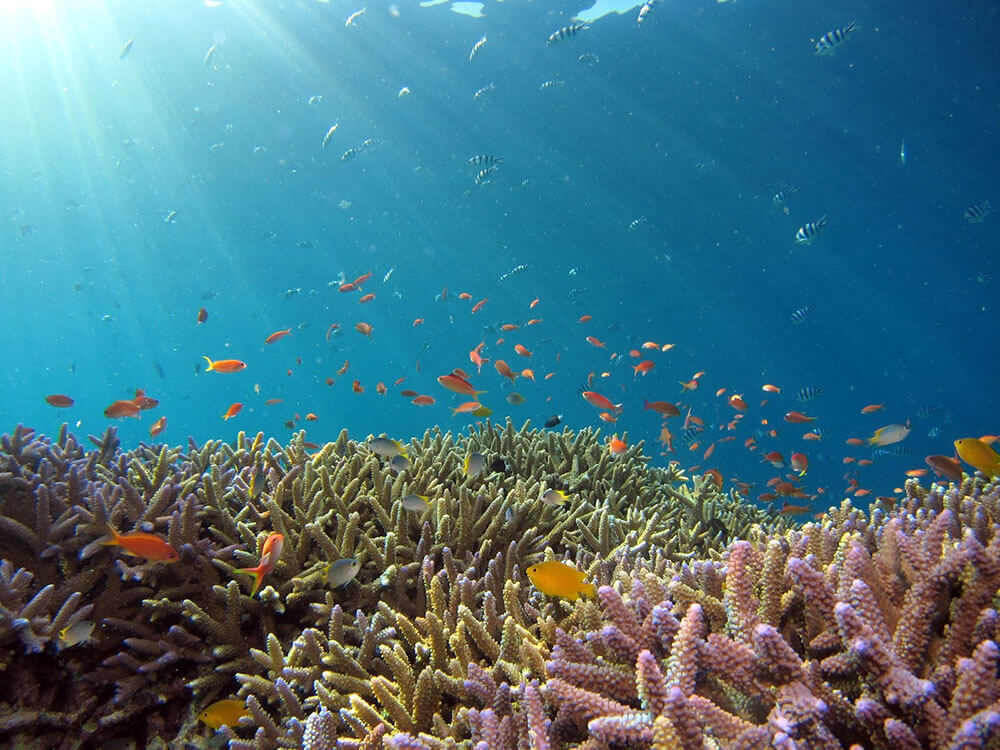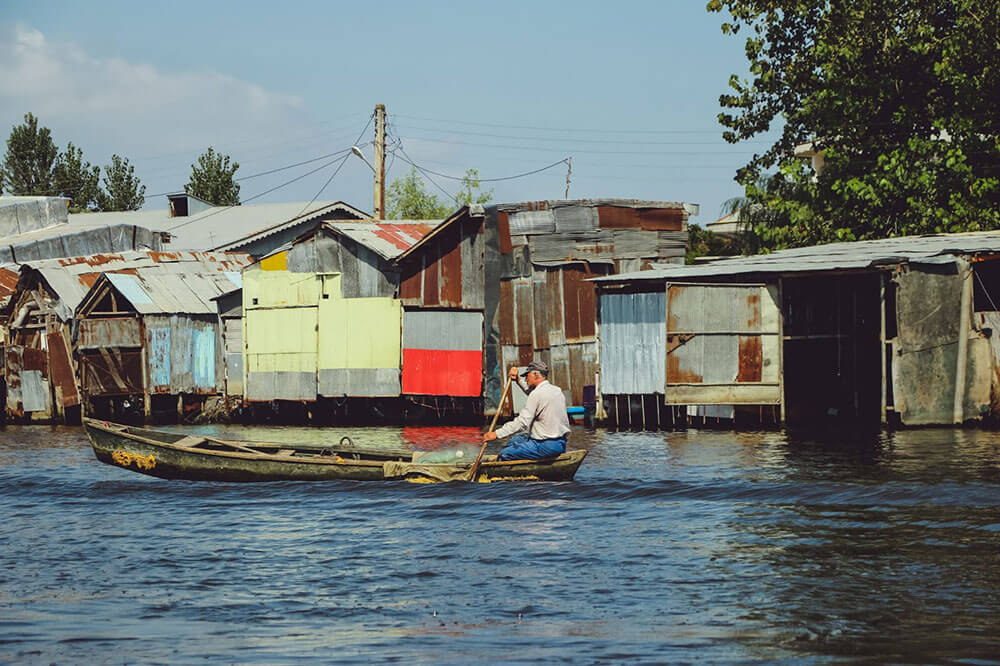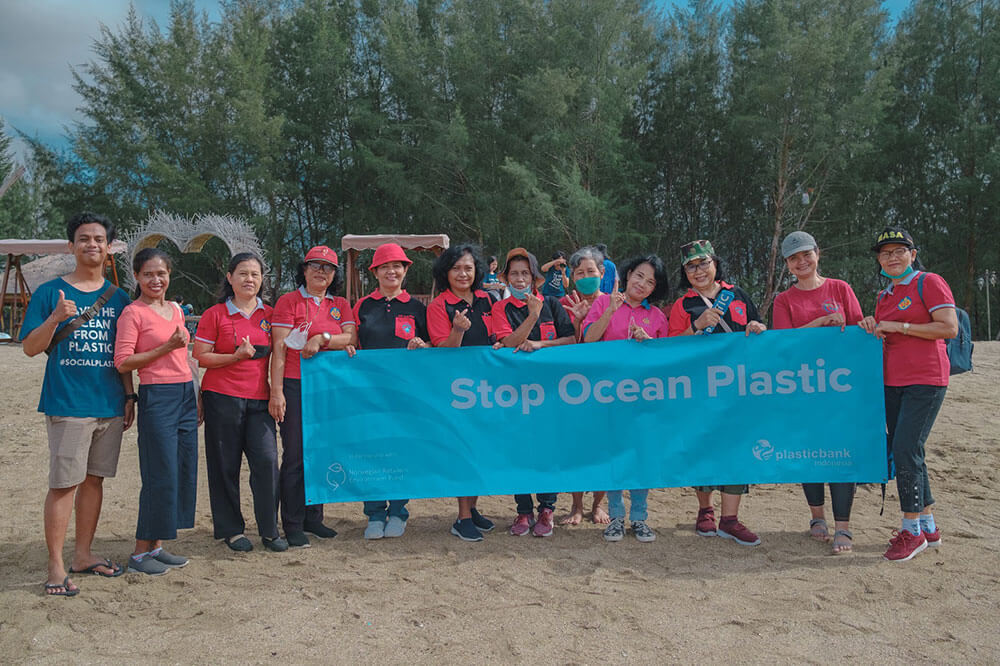
Gathering for prosperity: Plastic Bank’s sustainability journey in 2024
Every year, we deepen our commitment to ending poverty and stopping plastic pollution. But 2024 marked a turning point.
Are you sure you want to remove this item from cart?

Written by
on
6 minutes to read
 Photo by Hiroko Yoshii on Unsplash
Photo by Hiroko Yoshii on Unsplash
Did you know that 71 percent of our planet is covered by the ocean1? Although geographically divided into the Pacific, Atlantic, Indian, and Arctic, the ocean is one massive body of saltwater that flows through our planet – bearing testament to the interconnectedness of all life on Earth.
The ocean serves as a sanctuary to hundreds of thousands of species, but more importantly, it plays a significant role in sustaining life on land. Sadly, humans often turn a blind eye to the devastation we are causing the marine ecosystem. Take ocean plastic pollution for example, which kills 100,000 marine animals annually due to plastic waste ingestion and entanglement2, and overfishing, which has led to nearly 90 percent of global marine fish stocks being fully exploited or overfished3.
We like to think that there are more pressing environmental, social, and economic issues that we should prioritize, but the truth is saving the ocean is key to tackling several of these challenges.
 Photo by Sara Moezzi on Unsplash
Photo by Sara Moezzi on Unsplash
If we opt to solve one problem at a time, we might as well start with the ocean and experience the waves of positive effects that it will bring to our planet and society. Here are some of the global challenges that can be addressed if each of us becomes an Ocean Steward.
1. Poverty
A healthy ocean provides a stable livelihood to coastal communities, especially in developing nations. According to an article by Economist Impact, over 3 billion people in the world rely on the resources from marine ecosystems to make a living4, and about 10 percent of the global population is employed by the fishing and aquaculture industry alone5. This means that by saving the ocean from plastic pollution and other damaging human activities, the ocean and its resources can open up vast opportunities for people living in vulnerable conditions to find a path out of poverty.
2. Hunger
More than 3 billion people depend on seafood as their primary source of protein6. Unfortunately, overfishing and plastic pollution have caused a decline in fish populations, which negatively affects our environment and food security. By promoting sustainable fishing practices and reducing plastic waste in the ocean, we have the potential to alleviate world hunger and ensure that future generations have access to this vital resource. A study published in the Proceedings of the National Academy of Science shows that protecting just an additional 5% of the ocean could lead to a 20% increase in fish stocks and provide enough seafood to feed an additional 200 million people annually7.
3. Climate change
The ocean absorbs about 30 percent of human-generated carbon dioxide emissions8, which helps in reducing greenhouse gas concentrations in our atmosphere. The result is a cooler Earth, since the ocean’s immense waters act as a gigantic heat sponge, soaking up more than 90 percent of the additional heat produced by these emissions. The ocean takes its protective powers a step further by acting as a vital thermostat for our world, with its currents distributing heat and maintaining a balance for our climate. It is our guardian against the unforgiving forces of climate change.
4. Gender inequality
Saving the ocean might seem unrelated to reducing gender inequality, but these two issues are intertwined. Coastal and marine resources play a vital role in the livelihood of many communities worldwide, where women are often marginalized or face significant gender barriers. When we take action to save the ocean, we create empowering opportunities for women in these communities to participate in sustainable economic activities, such as ecotourism, marine conservation, recycling, and sustainable fishing practices. This benefits the environment, strengthens community resilience, and promotes gender equality by amplifying women’s voices and decision-making power.
5. Clean water scarcity
The world is facing an alarming water crisis where 26 percent of the global population lacks access to clean water9. However, not all hope is lost. If we shift our focus towards safeguarding the ocean, it can play a crucial role in providing clean water through desalination – the process of purifying saline water into potable freshwater. Desalination can potentially provide millions of people living in water-stressed regions with better access to clean drinking water, positively impacting their quality of life and overall health.
6. Slow economic growth
The ocean holds immense potential to boost economic growth in developing nations, creating a symbiotic relationship between environmental conservation and financial prosperity. Through the sustainable management of marine resources, countries can tap into lucrative industries such as fisheries, aquaculture, and maritime tourism. As these sectors expand, they stimulate job creation and reduce poverty, providing a reliable source of income for millions of people. Protecting the ocean from plastic pollution also improves marine-related infrastructure and enhances the environment, making coastal areas more attractive for sustainable investments and eco-tourists alike. Investing in innovative technologies and policies to save the ocean can unlock a wealth of opportunities and foster a thriving, sustainable economy that benefits both people and the planet.
 Plastic Bank’s Ocean Stewards in Indonesia after a beach cleanup during #WorldCleanUpDay2022
Plastic Bank’s Ocean Stewards in Indonesia after a beach cleanup during #WorldCleanUpDay2022
The ocean tirelessly serves humanity even in its polluted condition. It is time to ask ourselves, when and how are we going to serve it back? You have the opportunity and power to become an Ocean Steward NOW. We invite you to join our Social Recycling movement at plasticbank.com and discover how you can help stop plastic from entering the ocean while empowering ethical collection communities across Southeast Asia, Latin America and Africa.
More importantly, we encourage you to make daily appropriate decisions to create true change. Bring in the mindfulness of recycling in what you purchase, how you use it, and how you dispose of it. Demand products and packaging that are designed for circularity from retailers. Whatever big or small you can do, let it signify your stand for a regenerative economy, where every purchase and every transaction can heal our ocean, the planet, and all life on it.

Every year, we deepen our commitment to ending poverty and stopping plastic pollution. But 2024 marked a turning point.

Imagine a world where the ocean brims with marine life, not plastic, and communities thrive by bringing the materials they purchase back to circularity. Enter Plastic Bank, a social enterprise committed to helping humanity win the battle against plastic pollution and poverty.

A portrait of a collection community member with a plastic bottle in front of the beach in Port SaidPlastic…

Discover the bracelet that serves as a symbol of change.